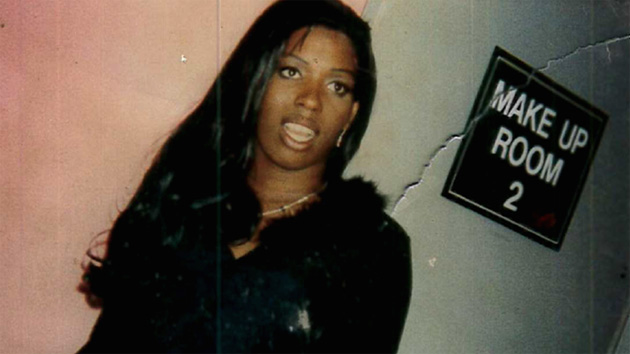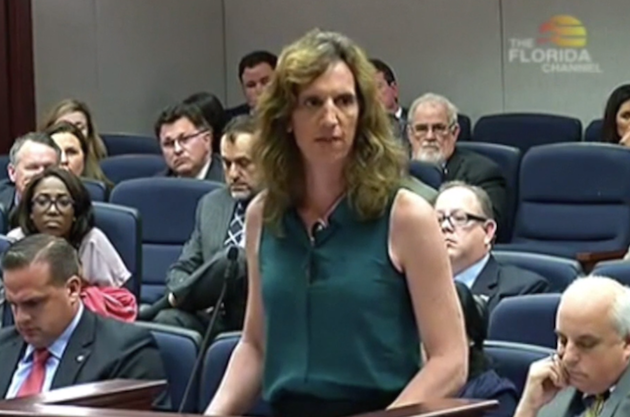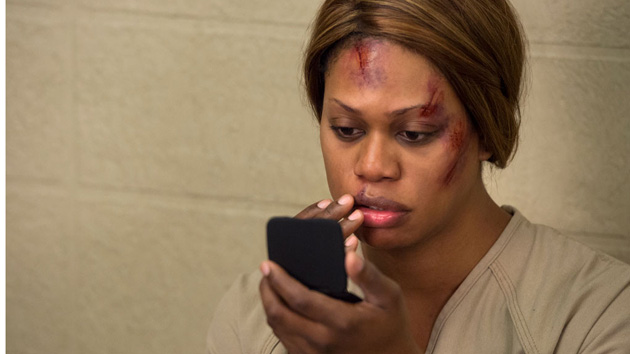
In the TV series "Orange is the New Black," actress Laverne Cox plays a transgender woman who encounters violence while serving time in prison. Netflix
Update (7/22/2015): A 25-year old transgender woman has been found beaten to death in Tampa Bay, Florida, in what is believed to be the 10th murder of a transgender woman so far this year, the Guardian reports. The body of India Clarke was discovered just before 9 a.m. on Wednesday morning, according to investigators, who say she died as a result of blunt force trauma.
During the first two months of this year, transgender women of color were murdered at a rate of almost one per week in the United States. In fact, this minority group may be the most victimized by hate violence in the country, according to a new investigation by the Southern Poverty Law Center. “We’ve had people burned in their homes,” Raffi Freedman-Gurspan, a policy adviser for the National Center on Transgender Equity, told SPLC journalist Don Terry. “We’ve had people’s genitals mutilated after they’re dead. It’s absolutely rooted in transphobia and hatred and it’s absolutely a national crisis.”
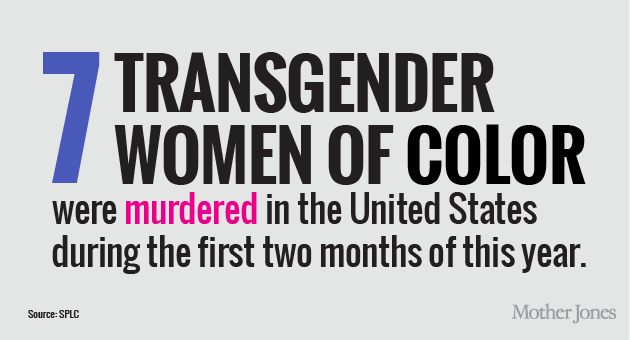
LGBT advocates have long reported that transgender women seem to face disproportionately high rates of violent hate crimes. But reliable data can be hard to come by: It wasn’t until last year that the FBI published its first statistics on hate crimes against gender nonconforming people, and those figures—like the bureau’s counting of hate crimes in general—seem to grossly understate the real situation.
According to the FBI’s most recent annual hate-crime report, 33 hate crimes in 2013 were motivated by gender identity. That only reflects cases that were reported to authorities, and experts say many victims are reluctant to bring their stories forward. Average annual hate-crime statistics collected by the Department of Justice (covering 2007 to 2011) were as much as 40 times higher than the FBI’s 2013 count, in part because the DOJ considered individually each crime in a series of up to 10 attacks against a single victim, rather than lumping those attacks together as one crime.
Information collected by other organizations also indicates the problem is bigger than FBI data suggest. In a survey by the National Coalition of Anti-Violence Programs, 344 transgender people reported that they survived a violent hate attack in 2013. (This number has been disputed, the SPLC’s Terry notes, because it includes cases not classified as crimes by law enforcement officials.) That year, the NCAVP documented at least 18 homicides of LGBT and HIV-affected people, and two-thirds of those victims were transgender women of color. “My grandmother is 90 and I have more dead friends than she does,” one transgender woman told Terry. “Killing us is nothing new. It’s like being a policeman. When you go to work, you know you might get shot. It’s just something that comes with the territory.”
Before the FBI started looking at hate crimes motivated by gender identity, it counted hate crimes motivated by sexuality, and it was clear that LGBT people faced disproportionately high rates of this violence. In 2010, the SPLC calculated the proportion of minority groups—including racial, religious, and sexual minorities—in the overall American population, examining how that matched up with the number of hate crimes perpetrated against those groups over a 14-year period, based on the available FBI data. Here’s what they found:
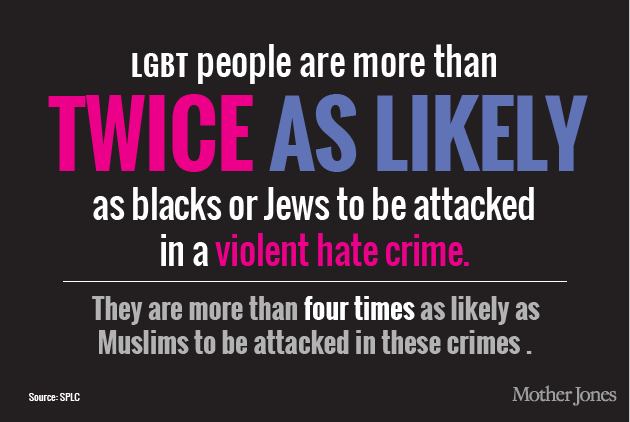
Transgender women also seem more likely to face abuse at the hands of cops. When documenting hate violence against LGBT people in 2013, the NCAVP found that transgender women were the most likely group to experience police discrimination, harassment, and sexual violence.
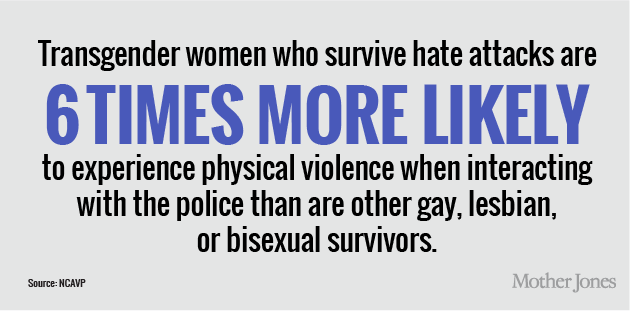
And this cycle of violence may be fueling high rates of suicide. In 2011, the National Center for Transgender Equity and the National Gay and Lesbian Task Force interviewed nearly 6,500 transgender and gender nonconforming people about the discrimination they face. Here’s what they found:
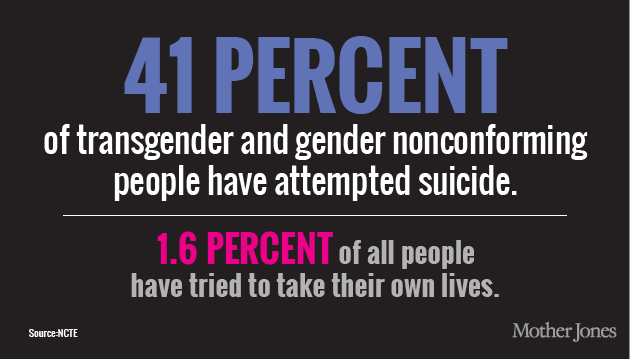
For a more comprehensive look at the problem, read the SPLC’s full investigation here.


